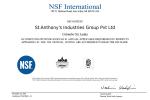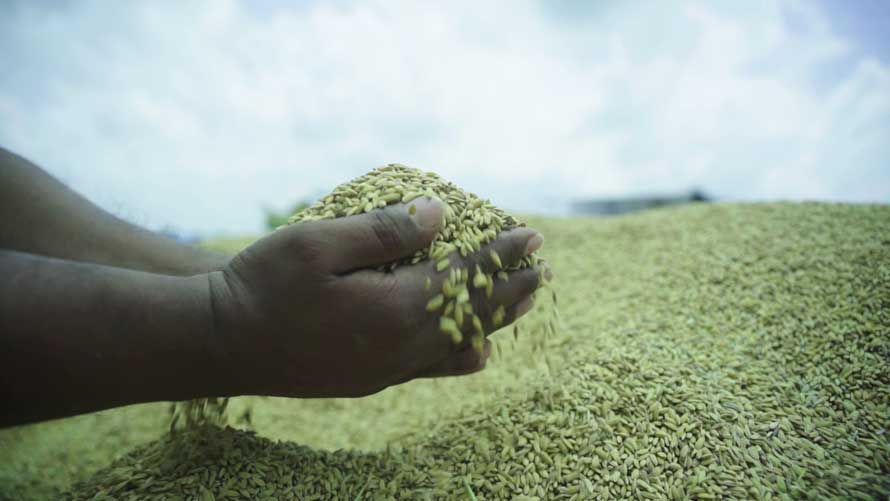According to the Food and Agriculture Organization of the United Nations, a steady increase in global hunger since 2014 clearly indicates the need to accelerate and scale up actions to strengthen food systems and protect people's livelihoods.
This highlights an increasing need to provide affordable and healthy diets for all and decent livelihoods for food system workers.
Across Asia, the issue of food security perpetually hovers over numerous poor and working class households.
Many global social organisations list malnutrition as a major regional challenge, with several estimating that Asia houses 67% of the world’s hungry.
A national survey conducted by the World Food Programme indicated significant levels of acute malnutrition across all 25 of the Sri Lanka's districts.
In fact, the impact of malnutrition in all its forms - undernutrition, micronutrient deficiencies as well as obesity - on the global economy is estimated at USD 3.5 trillion per year.
Having a balanced diet rich in protein has shown to be important in reducing the prevalence of obesity, malnourishment and even non-communicable diseases, growing among the population in Sri Lanka.
Chicken and poultry products being a staple component of the Sri Lankan diet, offers ample nutritional benefits aside from their obvious high quantity of protein.
For instance, the maize used to feed the chickens is particularly rich in pro-vitamin A carotenoids, which are converted into Vitamin A once they enter the human digestive system.
Vitamin A is vital for the body’s processes of growth, development and immunity.
These facts considered, Sri Lanka’s poultry industry stands as a crucial weapon in the battle to nourish Sri Lankans who are undernourished and cannot afford an enriching diet.
Quality chicken has been identified as the most affordable, nutritious protein source accessible to the entire population.
“The concepts of growth, nutrition and sustainability pervade our entire operational and CSR structure.
As a home-grown company, our vision has always been to drive lasting positive change in the rural economy while bolstering the country's food security agenda." commented Crysbro Senior Marketing Manager – Amores Sellar
From an economic perspective too, the poultry sector’s yields have been exemplary; accounting for roughly half of the livestock industry’s 0.6% contribution to Sri Lanka’s Gross Domestic Product.
With an increase in population and tourism, poultry’s contribution to the agriculture sector is accelerating at a dizzying pace, while its potential to contribute to Sri Lanka’s export revenue is forecast to be high.
Presently, broiler hatching eggs and meat are exported to the Middle East and the Maldives, with plans in place for reach to be extended to the European Union market. Recently, Crysbro announced their maiden export of a shipment of chicken products to the Gulf Cooperation Council (GCC) region – making it the first-ever large-scale food export from Sri Lanka to the region.
Furthermore, the poultry industry is among Sri Lanka’s most structured and disciplined tax contributors.
Amores also highlighted the plight of poultry smallholders struggling to survive in Sri Lanka's rural economy, who already face numerous continuing challenges including lack of infrastructure, facilities, services and finance.
"We believe empowering current small-scale poultry farmers and encouraging new entrants to the market will have great impact on the overall economy of our country and even in increasing our export earnings.
These are farmers who already struggle with limited access to markets, reduced inputs for production, scarce and unreliable availability of labour, and absence of a coordinated response that could ensure health and safety during a pandemic, as well as the lack of mitigation measures to address the limitations on the ground."
As a major player in this swiftly progressing industry, Crysbro has so far made a significant contribution to rural economic and social empowerment through its flagship CSR projects: Diri Saviya, Praja Aruna, Sisu Diriya, Suwa Shakthi and Haritha Sathkara.
By dealing directly with rural farmers and poultry farm owners, Crysbro has incited major communal and economical transformation in rural regions.
Under Crysbro's 'Diri Saviya' program, the operations and lives of 1,200 maize and rice farmers as well as 250 poultry smallholders have been secured.
Diri Saviya gives these farmers access to a wealth of essential technical and infrastructural facilities to strengthen their operations, and allow them to sell their produce at market prices without the need for any intermediaries.
'Sisu Diriya', another of the company's CSR pillars, has taken the initiative to provide educational material to more than 6000 school children and scholarships to students completing their university or vocational education.
'Praja Aruna' has initiated the construction of 34 new houses for the under-privileged and renovated 80 houses.
'Haritha Sathkara' has seen Crysbro overlooking the planting of 5,000 saplings in major areas of the island.
'Suwa Shakthi', which focuses on health and wellbeing, has so far conducted 20 health camps and offered free medical checkups and medicine to all of Crysbro's staffers as well as villagers in these areas as well.






















